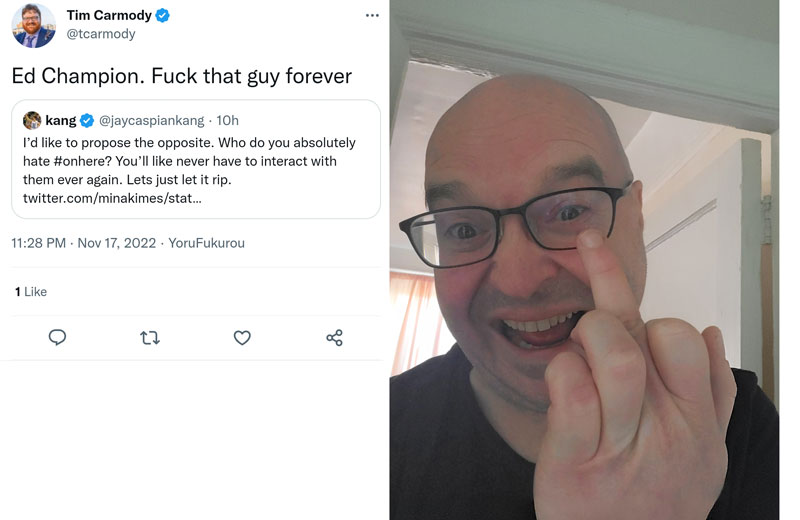(Start from the Beginning: The Dead Writer)
(Previously: The Talk)
The deli was located on Block 1263, Lot 26, assigned for rental by Rotaine Realty to an equity company run by bloodless money-hording men. They had learned in their formative years at Wharton and Kellogg that having either an active imagination or a human heart was a financial liability.
Many of the equity men had not laughed for at least a decade. They feared that possessing a sense of humor might loosen their vise-like grip on several Midtown buildings in the area. And on a nice autumn day, you could usually find many of them standing on the top of buildings practicing new ways to be more callous and considering the best method of plotting world domination. Which was absurd. Because they were merely intermediaries. They had as much of a shot at changing the world as a Green Bay Packers fan, his delirious face painted in the ritualistic paint of white and green, has in willing Aaron Rodgers to throw the right spiral to a wide receiver.
They kept a close eye on property appraisals and how much those bastards in Albany wanted to tax them and how much these heightened taxes could be used by Rotaine to alter preexisting agreements. They had to ensure that the millions they borrowed could be significantly offset by the exorbitant rents they charged to business owners operating with a dicey profit margin. And this was not always easy. These feverish and often cruel capitalists, who got excited about wealth acquisition in much the same way that the rest of us stare in wonder at cloud formations, had signed and notarized security instruments that were decidedly unfavorable to them. So they passed along this spirit of unfairness to renters, who had even less leverage than they did. Sure, the equity men had their own high-priced attorneys — men who had also not laughed for at least a decade but who were too timid and passive-aggressive to stand on the tops of buildings — look over the documents and try to negotiate with Rotaine. But the only point that Rotaine would concede involved the chalky strip of cornices lining the edge of the building’s roof, which the equity company hoped to upgrade and repair so that, collectively, Rotaine and the equity company could boost the property value and avoid pecuniary surprises.
Everyone in real estate knew that the insurance men had a weird fetish for cornices. Nobody really knew why cornices mattered so much, but they did. And when an insurance appraiser inspected a property to determine the next year’s premium rate, cornices were a very big deal. If even one of your cavettos flailed against the mathematical ideal or you couldn’t remove that flock of pigeons settling upon one of your eaves, you were basically fucked. You’d get dinged and reamed and the realtors remained unsympathetic about this state of affairs. The cornice problem had allowed engineers and contractors to make very good money preserving and replacing cornices. And this is why you see so many well-maintained cornices in Manhattan. It is not so much that these men wish to uphold architectural beauty. It really comes down to people in real estate having the joyless temperament of tight and cutthroat cheapskates.
It is safe to say that none of the parties assembled in the deli behind imposing steel gates had considered the role of cornices in their paycheck-to-paycheck lives. They were too busy trying to survive, scanning supermarket circulars for sales and finding inventive ways to pinch pennies as inflation reared its ugly head. Certainly Ezmerelda had never thought about cornices. But she was thinking about the creepy signs and Black Messiah incantations she had briefly witnessed in the scuffle outside right before the nice man had let her in.
She walked up the stairs and saw dozens of dewey-eyed refugees sitting at the tables on the second floor. Some of them made valiant efforts to join domino games, which were spearheaded by cheerful men who looked at the bones below them with a fierce intensity that more sheltered types devoted to studying the Voynich manuscript. Some of them whimpered in corners. One woman took advantage of this improvised lockdown and was practicing her twerking moves in time to the thumping bossa nova beats booming loud over the speakers. Blue collars and white collars were forced to console each other as the submachine guns roared and rattled outside, punctuating the apocalyptic aura much like a plate of tiramisu served after a nice Italian meal. But this was New York, a city where you yawned as some rando screamed obscenities on the subway. And they quickly grew accustomed to the fix they were in. And the deli was started to feel more like a happening block party before some affluent homeowner calls the police to break up the fun — largely because he is too miserable and mirthless to land party invites and he feels an overwhelming need to extinguish other people’s felicity.
A large flatscreen TV played CNN on mute, with the closed captions and the news crawl offering variations on the same theme that had already been swiftly established: this was the beginning of a civil war. And New York was not the only city where insurrections had breaking out. Chicago, Boston, Los Angeles. Firebombed buildings steamed with thin onyx teems of smoke as anchors offered the usual inappropriate cheerfulness and halfassed analysis, although this time they weren’t embellishing their reporting with a farrago of F-bombs.
They said that the long-standing tension between red and blue had simmered to a boil. Nobody knew who had assassinated Tucker Carlson. The Lee County Police, unaccustomed to doing little else on their shifts other than eating donuts and straining their brains with the latest Wordle puzzle, were not especially equipped or perspicacious enough to solve the mystery. And when the police chief appeared on camera to deliver a statement to the press, he had the look of a man who squinted with hopeless incomprehension when you cited Plato. And because the newsmen and the people in power were so inept when it came to informing the public, everyone was relying on Reddit conspiracy theories. Political leaders, who could not rectify their inveterate habit of doing fuck all to prevent such disasters, offered their thoughts and prayers.
Ezmerelda stood near the wall taking in the scene: a strange amalgam of people surrendering to the grief of an endgame they could not control or trying to make the best of it by throwing a party. The biggest surprise was that nobody was fucking each other out in the open. It was almost as if impending developments on a massive scale had caused people to reevaluate what was socially appropriate. Not unlike the way that people, shortly after 9/11, had for a brief time actually been there for each other.
She felt a hand on her shoulder. She spun around, prepared to deck a menacing stranger. But it was the same unassuming man who had ushered her into his deli.
“You eat,” he said, pointing at the open-air view that revealed a line of people gathered on the first floor, scooping soup from four very large tureens. “Sushi and soup. All free.”
“Free?”
“I take loss anyway. All free. You eat, rest up.”
“Thank you.”
The man didn’t tell Ezmerelda (or anyone else) that he was going to throw out the soup anyway and that, had not the excitement happened outside, he would be trying to sell off the remaining sushi that he’d have to toss at the end of the day by placing a 50% off sign next to all the plastic containers.
She didn’t know how long she was going to be here. Would the police be able to stop the two factions from murdering each other? She already knew the answer. She remembered her Carnarsie days, that ugly afternoon when she and her mother walked home with groceries and two cops stood outside a police car, arms crossed and staring into space as some gangbanger shot a brotha right in the head. They knew that they needed to walk right past them and not give them any eye contact. A pig always found any pretext to arrest you. There was a white gentrifier openly screaming at the two cops. “Aren’t you going to do anything about this?” he screeched in an adenoidal voice that Ezmerelda laughed about later. “Not our responsibility,” said one of the cops. “If you have a problem, call 911.”
The only way that you could get the pork chops to do anything was if unruly crowds directly threatened the financial interests of property owners. Only then would the police summon the nerve to serve and protect.
She scooped up a plastic container of spicy tuna rolls in brown rice and settled down at one of the tables, breaking apart the tiny wasabi mass with her chopsticks after pouring a penny-thin pouch of soy sauce over it.
That’s when the two white women approached her: one standing six feet tall and casting a strangely proprietary shadow on the table, the other a blue-haired riot grrrl with several studs in her nose.
“Excuse me,” said the tall one. “Are you?”
“I’m trying to eat,” replied Ezmerelda.
“You see?” said the riot grrrl. “It’s her!”
“Who?” said an old dude in a sad Sears suit sitting by himself.
“Nobody asked you,” sneered the tall one. “You’re part of the patriarchy.”
“I’m sorry,” he said, cupping his hand to his face to hide and returning to desperate pokes at his phone.
“You’re a hero, you know,” said the riot grrrl.
“I’m no hero.”
“You’re going to save us!” said the tall one.
Ezmerelda dropped her chopsticks onto her paper napkin.
“Bitch, I’m not here to save anyone. Can you just leave me alone?”
The riot grrrl laughed. “She’s so funny.”
“That wasn’t a joke.”
“She is the Messiah!” shrieked the tall one.
“The Messiah?”
“I saw a TED Talk from Brie Attenberg,” said the riot grrrl, “in which she said that Black people are the Messiah.”
“I’m not Christ. I don’t believe in a fictitious deity.”
“The Messiah is always humble,” beamed the tall one.
“How many times do I have to tell you? I’m not the fucking Messiah. Now can you please let me eat my sushi in peace?”
“Bev, I don’t think we’re being mindful,” said the riot grrrl.
“Oh right, Lydia,” said Bev. “We forgot to check our privilege.”
Bev and Lydia locked arms.
“Everyone!” shouted Lydia. “We have something that we want to share.”
“Oh no,” said Ezmerelda.
The men looked up from their domino games, half of them shaking their heads. Then they returned to slapping down bones. The only real audience these two women had was the friendless man who they’d berated only a few minutes before.
“My name is Beverly. And I’m ashamed to a colonialist!”
“My name is Lydia. And I hate being white.”
“We are here to save this woman!”
“Stop it,” said Ezmerelda.
“We are guilty.”
“Guilty of being white.”
“This is Ezmerelda Gibbons. A Black victim in the war against women.”
The friendless man pointed his phone to this scene and began to live stream it.
“She took to OnlyFans because the white imperialists oppressed her!”
“White imperialists like us.”
Ezmerelda hurled her chopsticks into the dark basin of the half-eaten sushi container.
“Bitch, are you trying to speak for me?”
“Wh — what? No!”
“Because it sounds like you are.”
The two women immediately shut up and waved their hands desperately to appear deferential.
“We didn’t mean it like that.”
“How you meant it,” said Ezmerelda, “isn’t how I experienced it. Let me ask you something. Do you know who Tyler Perry is?”
“Is he the guy on Friends?”
“Or how about jerk chicken? Ever had it for dinner?”
“What’s jerk chicken?” whispered Lydia.
“Yeah, I thought so,” said Ezmerelda with a smile. “Y’all trying to take my life and make it yours. But you don’t have a goddamn clue how I’ve lived. I’m not a victim. Maybe you are. But I’m not.”
“But you’re…you’re…”
“An OnlyFans girl? Yes, I was. But I wasn’t oppressed by imperialists! Girl, where’d you get that crazy white shit from? Y’all just looking for a reason to take my life and make it yours. White fucking saviors going around calling me the Messiah and shit.” She looked into the camera. “Can you believe this? Black people aren’t your collectible dolls. I got a mind and a life. And I’m damned happy with how things turned out. So you can take your Karen crusading bullshit and stick it up your bony, clueless, calorie-denying ass. Black people don’t need you.”
The domino guys began applauding.
“Holy shit,” said the friendless man.
“What?” replied Ezmerelda.
“This, uh, live stream is going viral. I’ve got fifty — no, sixty thousand people watching it.”
“Then maybe you should shut it off.”
“Okay,” said the friendless man.
Bev and Lydia slinked to the back of the room in embarrassment.
“What’s your name?” said Ezmerelda.
“Donald Moore,” said the man, offering his hand. “And I can’t get in touch with my wife Ginny.”
(Next: Old Habits)
(Word count: 41,096/50,000)





